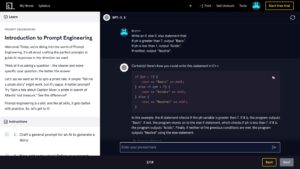In an HRE webinar this week, industry analysts Josh Bersin and Kathi Enderes spoke about how the HR function is evolving to drive HR transformation and address people-related priorities.
That function is the crux of Systemic HR, the Bersin company’s initiative aimed at breaking down silos within HR and supporting organizational change. The presentation touched on the limits of HR tech when it’s not supported by leaders with a systemic mindset.
Bersin underscored the role of leadership, advocating for assertive, bold and innovative approaches to HR transformation. “You have to operate at a higher level,” he said. “It’s a mindset shift about what you’re here to do.”
Bersin and Enderes said the systemic human resources style is oriented toward problem-solving and uses data intelligence to drive transformation, productivity and growth. In fact, Bersin Co. data shows that organizations with a systemic HR approach are 12 times more likely to have higher workforce productivity than companies with HR departments focused only on compliance and transactional service delivery.
During the packed HRE webinar, Bersin emphasized the importance of prioritizing people in every sector: “No matter what industry you’re in, you’re in the people biz.” He urged HR leaders to begin leveraging existing staff resources to cultivate their teams for a consultative approach. Even orgs with limited hiring and tech budgets can shift the standards of current staff members.
While acknowledging the critical role of technology, data and insights in driving systemic change, Bersin cautioned against relying solely on technological solutions for HR transformation. “I don’t want to underplay the value of tech, but tech can’t do [transformation] by itself,” he said.
HR tech in action
As part of The White House executive order detailing regulations on artificial intelligence systems, the Biden administration is discussing whether the most advanced AI systems should be “open-source” or closed. The White House announced this week that it is soliciting public feedback on the advantages and drawbacks of making key components of AI systems publicly accessible for modification.
As AI use gets more sophisticated, researchers at global talent solution AMS say that evaluating early career applicants will become more dynamic to ensure candidates aren’t relying on AI to present themselves. AMS expects there will be a focus on conversational interviews with a human touch, enhanced training for hiring managers, work sample assessments, situational assessments and increased in-person hiring practices.
A study by enterprise solutions provider SAP considered Google search data for terms such as artificial intelligence careers and AI internship to gauge interest in AI-related work. It turns out that California, Washington, Vermont, Massachusetts and Maryland are the top five hot spots for these search trends. According to the study, of the 10 states expressing the most interest in AI jobs, only six are home to the highest number of businesses planning to implement AI in the next six months.
HR tech releases and updates
Alight, a cloud-based human capital and technology services provider, unveiled its latest AI engine, Alight LumenAI. This release integrates generative AI into the Alight Worklife platform, offers a unified view of each employee across several touchpoints and provides accelerated integration of external data sources into AI decision-making.

Skillsoft Codecademy rolled out new features and courses to help learners develop technology and AI-related skills. Enhancements include integrating prompt engineering functionality into training workflows, plus an AI-powered tool designed to aid tech professionals in securing their ideal jobs.
HR software firm BrightHR proposes to HR leaders that AI models can support neurodiversity initiatives in the workplace. Capable of personalized solutions such as transcript creation and writing help, BrightHR says AI has the potential to democratize diversity and inclusion efforts at work.
More from HRE
In 2023, the inaugural Chief AI Officer Summit took place in Boston, featuring speakers such as HRE’s 2017 HR Executive of the Year, Lisa Buckingham, and Kevin Martin, chief research officer at i4cp. Martin told attendees that AI success hinges on “culture and talent,” which are inherently shaped by leadership.
As employee expectations rapidly evolved in the last few years, flexibility became a cornerstone. For HR tech platform provider Safeguard Global, that reality has fueled a philosophy that extends to its workforce and is baked into its tech: Employees should be able to “work in any way.”
New dates, free registration. Thousands of forward-thinking HR and tech leaders eagerly anticipate HR Tech Online every year as a sure-fire, convenient way to stay on top of current tech trends and gain problem-solving approaches for HR success. Save your spot now.

